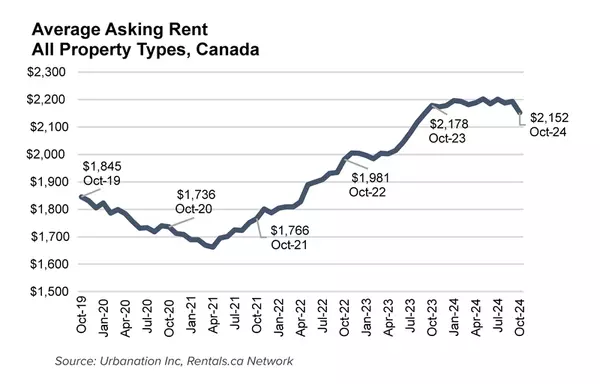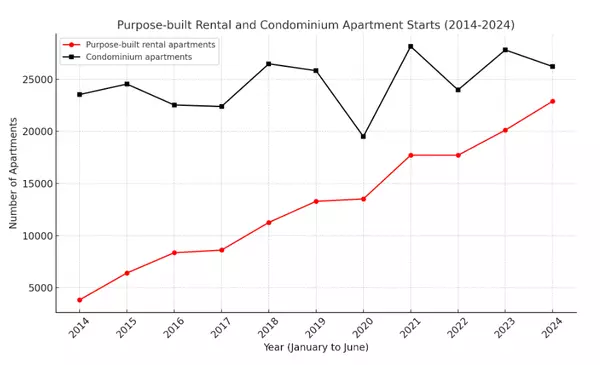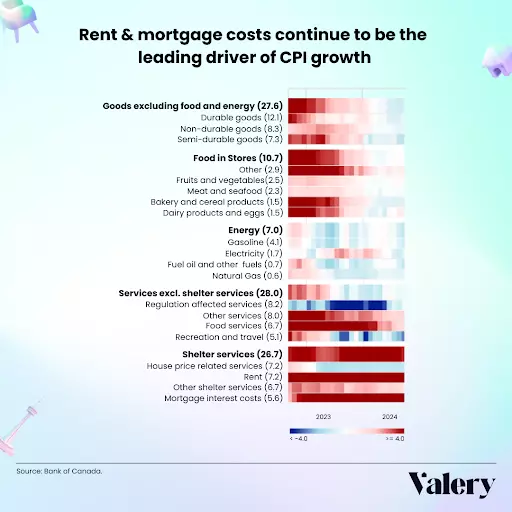
4 in 5 Canadians say housing crisis is shaping life decisions, survey finds
Homeownership is becoming a pipe dream for many Canadians, according to a new survey released by Habitat for Humanity Canada. Four in five Canadians now say that buying a home feels like a luxury, while 88 per cent of renters say the goal of owning a home in Canada has become out of reach. The organization’s third annual affordable housing survey looked at the broader implications of Canada’s housing crisis. An overwhelming 82 per cent of Canadians voiced deep concern over how the housing crisis is impacting health and well-being, while 78 per cent see homeownership as a critical factor in the country’s growing wealth gap. The findings show a clear, collective anxiety across generations, with younger Canadians bearing the brunt of housing-related challenges. “Canadians are sending a clear message: the housing crisis is no longer just about housing,” says Pedro Barata, CEO of Habitat for Humanity Canada. The shrinking middle class Survey data reveals concern that the scarcity of affordable housing is fragmenting communities and threatening the middle class, with 82 per cent of respondents worried about a potential decline in this socioeconomic group. Over half of Canadians report worrying about sacrificing essentials like food, education and living expenses to cover their housing costs. Meanwhile, 41 per cent of respondents say the stress alone of not being able to buy a home is difficult for them to manage. Younger generations forced to rethink milestones Canada’s housing crisis is causing younger generations to rethink life plans. Two-thirds of Gen Z Canadians and almost half of Millennials have considered delaying starting a family because they can’t afford a suitable home, while four in ten say they have fewer job opportunities because they had to move to a more affordable area. A notable percentage (29 per cent of Millennials and 25 per cent of Gen Z) say they would consider moving abroad to find affordable housing. The survey also reveals that 73 per cent of Gen Z respondents are anxious about saving enough for a down payment. Barata emphasizes that young Canadians rethinking or delaying major life decisions could lead to “a deep and lasting impact on future generations and society as a whole.” Despite the mounting challenges, Canadians overwhelmingly support the idea of homeownership, with 87 per cent believing it offers stability, and 81 per cent seeing it as a way to build a better future for their children. Calls for action As Canada’s housing crisis grows, the survey reveals a clear demand for political action. Seventy-five percent of Canadians believe that housing policy should transcend political divides, urging a unified approach to the crisis. However, 68 per cent are skeptical that the federal government will reach its goal of building 3.87 million new homes by 2031. Canadians want policy initiatives that reduce taxes and fees for first-time buyers, promote affordable homeownership and convert unused spaces into housing. “Homeownership can’t just be the privilege of the wealthy or lucky few,” says Barata. “At Habitat we see the transformational change that happens when families own their own home, affordably. The security and peace of mind benefit their health, economic opportunities and investments in their community. It benefits all of us.”

Average rent in Canada drops for first time since 2021
For the first time since July 2021, average asking rents for all residential property types in Canada saw an annual drop in October. According to the latest report from Rentals.ca and Urbanation, rents dropped 1.2 per cent compared to October 2023, bringing the average monthly rent to $2,152. This decline is primarily driven by decreases in larger cities, particularly in British Columbia and Ontario. Vancouver recorded a year-over-year drop of 9.1 per cent for one bedroom units, Burnaby, B.C. saw a 9.4 per cent decrease, and Toronto registered an 8.7 per cent decline. Calgary and Montreal also reported annual decreases of 4.3 per cent and 4.6 per cent, respectively. “It is a rare occurrence for rents to decline at the national level. This is happening as the key drivers of rent growth in recent years—a strengthening economy, quickly rising population and worsening homeownership affordability—are beginning to reverse,” says Shaun Hildebrand, president of Urbanation. “As a result, we can likely expect this trend for rents to continue in the near term, particularly as apartment completions remain at record highs.” Month-over-month, average asking rents fell 1.9 per cent in October, and are down 9.3 per cent from the annual increase posted in May. Smaller markets see big jumps While the more expensive markets saw declines, traditionally affordable markets saw steep annual increases. Saskatchewan registered a 17.1 per cent year-over-year increase in apartment rents in October, reaching an average of $1,358—still well below the national average. In Nova Scotia, asking rents for apartments increased at the second-fastest pace provincially, rising 9.6 per cent year-over-year to $2,298. Rent decreases by unit type In B.C., apartment rents for one-bedroom units fell the most, down 4.9 per cent annually to an average of $2,254. In Ontario, the largest annual decline in apartment rents was for two-bedroom units, which saw a 6.9 per cent decrease to an average of $2,583. In Quebec, declines in apartment rents were seen primarily in one-bedroom units, which fell 3.2 per cent year-over-year to an average of $1,681. Across most provinces, three-bedroom apartments fared best, seeing either the smallest rent declines or the largest increases.

Toronto Rental Market Report: October 2024
The Toronto Regional Real Estate Board (TRREB) has released its rental market statistics for the second quarter of 2024, highlighting significant trends in the condominium apartment rental sector compared to the same period in 2023. The data showed an increase in both rental activity and the number of listings, reflecting a dynamic rental market influenced by various factors.Rental DemandIn Q2 2024, there were 17,400 condominium apartment rentals reported through TRREB’s Multiple Listing Service (MLS®), representing a 25.2% increase from 13,896 rentals in Q2 2023. This surge in rental activity is indicative of strong demand in the rental market, driven primarily by strong population growth in the Greater Toronto Area. However, the increase in demand is coupled with a 51.3% rise in condo rental listings during the same period. The TTREB expects the demand for rental housing to remain strong for the “foreseeable future”.Rental Price TrendsAverage rents have experienced a decline. For example, the average rent for a one-bedroom condominium apartment in Q2 2024 was $2,452, down 3.1% from $2,529 in Q2 2023, while the average rent for a two-bedroom condo decreased by 1.9%, falling from $3,239 in Q2 2023 to $3,178 in Q2 2024. These reductions in average rental prices reflect the balance between sustained demand and increased rental inventory, allowing renters to negotiate more favourable terms.The TTREB notes that while the current inventory expansion has led to lower average rents, this may be temporary if the construction and supply of new rental units do not keep pace with demand.More details can be found on the TTREB’s website.
Categories
Recent Posts











